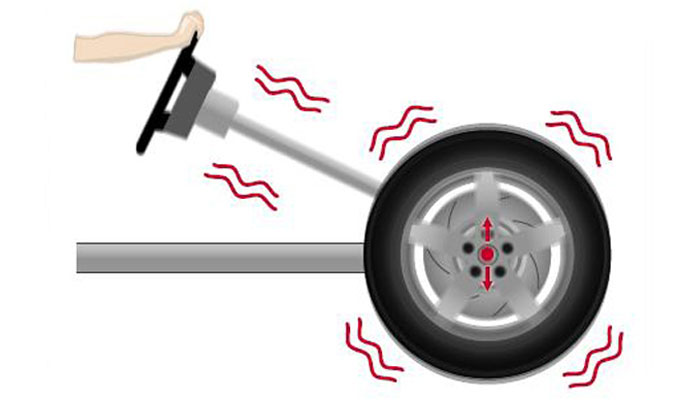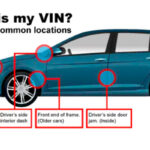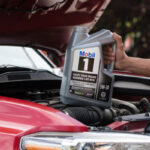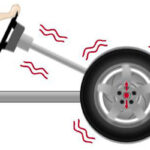Is your car shaking or vibrating while you drive? It can be unsettling, but the good news is, most of the time, it’s a fixable problem. Whether you’re cruising on the highway or driving around town, vibrations are usually a sign that something isn’t quite right. The cause could be something minor or something more serious. Let’s take a look at some common reasons why your car might be vibrating.
Sha-sha-sha-shakin’ Down the Road
When your car shakes, it might feel like a simple issue, but it’s essential to understand why it’s happening. Vibrations can range from mild to severe, and they often happen at certain speeds or under specific driving conditions. Whether it’s the steering wheel trembling or the whole car shaking, each type of vibration points to a different problem. Understanding these signs can help you address the issue quickly and prevent further damage.
Alignment
One of the most common causes of car vibrations is poor wheel alignment. When your car’s wheels aren’t aligned correctly, it can lead to uneven tire wear, making the car shake or vibrate, especially at higher speeds. You may notice the steering wheel pulling to one side or a slight drift when driving straight. If you’ve hit a curb or a pothole recently, it’s a good idea to get your alignment checked to keep your tires in good condition and avoid long-term damage.
Stop, Look, and Listen
It’s important to pay attention to how your car behaves. If you’re noticing a vibration, try to pinpoint when it happens. Does it start when you accelerate? Does it happen when you brake? Or maybe it occurs while cruising at a constant speed? The more information you can gather, the easier it will be for your mechanic to diagnose the issue. If the vibration only happens when you’re braking, it could be a sign that the problem is related to your brakes, but we’ll dive deeper into that later.
Wheel and Tire Problems
Wheel and tire issues are among the most common reasons for a vibrating car. If you have a tire that’s out of balance, you might experience vibrations, especially when you’re driving at higher speeds. Tires that are over or under-inflated can also lead to shaking. Another possible issue is tire damage, like a bulge or puncture, which can cause an uneven ride. If you suspect your tires, it’s best to get them checked and balanced. Replacing a damaged tire or properly inflating them can often solve the problem.
Worn Suspension Parts and Joints
Your car’s suspension system is responsible for providing a smooth ride. When parts like shock absorbers, struts, or suspension joints wear out, you might notice a bumpy or shaky ride. Worn suspension components can make it harder for your car to absorb road bumps, leading to vibrations. If you’ve been driving over rough roads or haven’t had your suspension inspected in a while, this could be the cause. A mechanic will inspect the suspension system to find any worn-out parts that need replacing.
Engine and Transmission
Your engine or transmission might also be the culprit behind car vibrations. If the engine isn’t running smoothly, it can cause the whole car to shake, especially if there’s a misfire or an issue with the fuel injectors. Transmission problems can also lead to vibrations, particularly if the car is struggling to shift gears. If you notice the shaking occurs when accelerating or shifting gears, it’s a good idea to have the engine and transmission checked for any potential issues.
Damaged or Worn Brake Rotors
If you experience vibrations when braking, it could be a sign that your brake rotors are damaged or worn. When rotors become uneven, they can cause a vibration that’s felt through the brake pedal or steering wheel. This is often a result of normal wear and tear, but if you’ve been driving with worn-out brake pads for too long, it can accelerate the wear on your rotors. In this case, replacing the brake pads or resurfacing the rotors will usually fix the issue.
Where to Get More Help
If you’ve checked for these common causes and the vibration persists, it’s time to take your car to a professional. A trained mechanic will be able to pinpoint the exact cause of the shaking and recommend the best solution. It’s always better to address vibrations sooner rather than later, as ignoring them could lead to more extensive and expensive damage. Regular maintenance and inspections can help catch these issues before they become major problems, so don’t hesitate to get your car checked out if you’re unsure.
Vibrations in your car can be more than just an annoying experience. They often signal an underlying issue that needs attention. By paying attention to the details, you can get to the bottom of the problem and enjoy a smoother ride once again.










